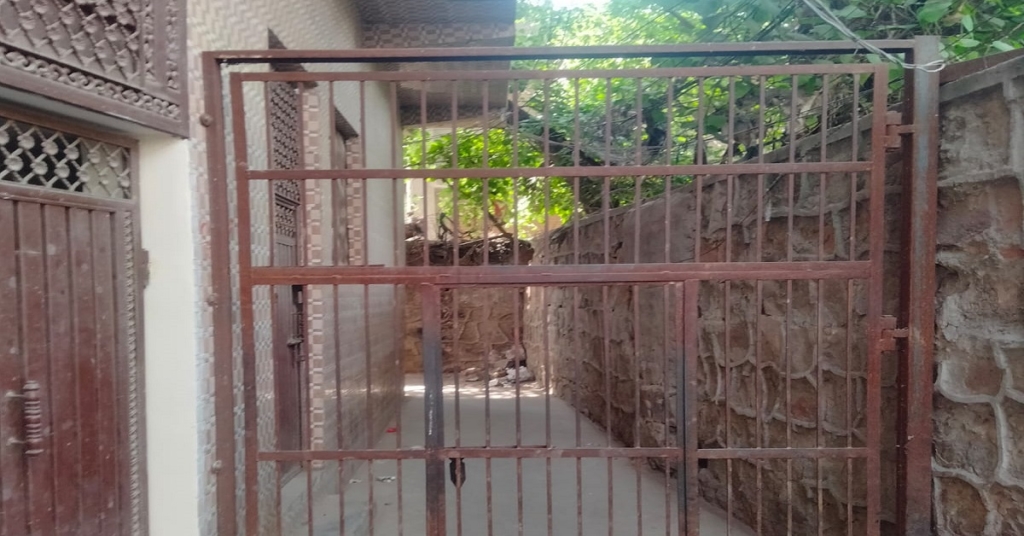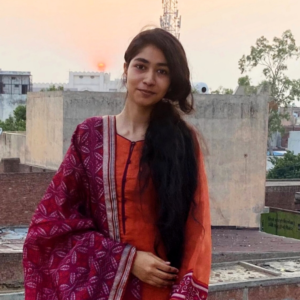
The struggles of a young Muslimah Supportive parents, social challenges, riots and lockdowns; the past two years have been a life lesson
07, May 2022 | Shaba
I spent twelve years of my life, unaware education of women was a major cause of dispute within communities. I experienced it when I was moving forward to higher education and was waiting for the class 12 board exam result. I was nervous.
My bossy brother had warned me this could be the end of my education, saying, “If you’ll get less than 80% you’ll enjoy the rest of your life sitting at home.” He sounds beastly doesn’t he? But he’s not, he was kidding, and loved teasing me like all brothers do. We had a good laugh.
CJP’s Grassroots Fellowship Program is a unique initiative aiming to give voice and agency to the young, from among the communities with whom we work closely. These presently include migrant workers, Dalits, Adivasis and forest workers. CJP Fellows report on issues closest to their hearts and home, and are making impactful change every day. We hope to expand this to include far reaching ethnicities, diverse genders, Muslim artisans, sanitation workers and manual scavengers. Our raison d’etre is to dot India’s vast landscape with the committed human rights workers who carry in their hearts Constitutional values, to transform India into what our nation’s founders dreamt it to be. Please Donate Now to increase the band of CJP Grassroot Fellows.
However, I was perfectly ready for whatever result was coming my way. I did well, as expected, after all I had worked hard for it. Now, there were a different set of butterflies fluttering in my stomach as the first day of college approached. The biggest question troubling me was what to wear on the first day. However, as they say, “Khushiyon ko nazar lagte der nahi lagti (It does not take long for the evil eye to ruin a happy moment).”
My father soon received countless calls from relatives. I overheard one such conversation in person, I didn’t want to, but I had to. He was speaking to my uncle, who was also our closest neighbour. “What will you get to educate your daughters? You’ll waste time, money and your reputation. They can’t be trusted,” he went on. I could not bear to hear anymore.
I was furious at my uncle, but at the same time happy because my father had managed to negotiate those critical days smoothly. He ignored all the naysayers, and with us, he pretended that no one had said a word. After that worst day of all the negative talk ended, the happiest day of my life dawned when I got admission in college. I was over the moon and was excited for my first day of college. It rained that day, during a hot Delhi summer, this is what makes for a wonderful day. I remember the day passed wonderfully just as I had expected.
Even though some neighbours and relatives saw our family as sinners and tried to convince my father to follow their advice, he ignored them all. It is because of my father, that I managed to be like a free bird, hesitant at first, then finding my flight path, slow and steady. However, that freedom was short-lived.
One day, I was in the college canteen with my mates enjoying the best burger I’ve ever had. Suddenly each one of us received calls from our homes. Nobody knew what had happened. We moved for the next class and finally our teacher told us that there were rumours of riots in North East Delhi. North East Delhi? Alarms went off in my head… that was my home! In this college, I was the only girl who came from there. This was our last lecture of the day, and it ended in tremendous fear. I packed up my bag, bid my friends goodbye and rushed out. My brother was waiting outside. The principal and teachers came with us to ensure we were going home safely. I was relieved to see my brother, and took a deep breath for me to put my things on the back seat of the car.
“How was your day?” he asked. “Fine,” I replied.” He’s older than me, a tall towering personality and I couldn’t read his mood that day. So I asked him what was happening in our area, “Were there protests? Was there violence?” He just calmly asked me to rest and told me I shall soon know everything.
I realised he was driving back home via a different route that day. His mood too was changing in seconds. I saw some rallies from the back seat of the car, they didn’t seem as dramatic to me as I had imagined. They were loud though, I don’t remember the slogans now, but I do remember the noise. My brother drove us home safely. As it had been a hectic day I was tired and took a nap. I woke up to see a notification from college. It was shut down for a couple of days. There was news of violence in the area. We could see videos of burnt petrol pumps and a broken mazar in the news. It was unending and no one knew what lay ahead.
Mohalla sabhas were held in the neighbourhood. It was decided to collect money and build gates at the end of the streets. They built strong gates and we felt protected. Days passed, and it was time to attend college again. However, I already knew no one would allow me to go now. My classmates and I missed classes. However, the violence had ended but Covid-19 had begun! We were locked in.
I saw how hard it was for people to survive a month at home without a job. The working sector was suffering each day. People helped each other. There was an old lady in the neighbourhood whose husband was paralysed. Our mohalla committee was helping her survive in the aftermath of the riots. However, she soon decided to leave Delhi and return to her hometown. Our mohalla committee contributed money and sent them home safely. Like her, many other people migrated too. I didn’t know any of this then and realised the situation when she visited a couple of days ago. I spent some hours with her and asked her if she was coming back. “No”, she replied sadly, “No, not again.. we are happy there.”
Months passed without attending college. I felt a great loss. Then the government decided to conduct online classes. But for this, one needed a good internet connection which I and many others did not have. “What about those who don’t have smartphones?” I wondered. We were teenagers, ready to learn, and hoping to explore our surroundings. I never knew we’ll “explore” a “second hand” online experience from home. I often missed classes because of poor internet connection. But I realised it was still better than nothing. Festivals and birthdays were happily celebrated on video calls, we even had college competitions online! I had never imagined that one day we’ll do everything virtually.
In the beginning it was all good, but we were missing real life interactions and only met up online. It has taken two years to limp back to normal. Now that the lockdown has ended I realise what prisoners freed from jail feel, and what will be the first thing they’ll do. They will meet people who make them happy. People are now organising gatherings and it feels like a new chapter. A whole new planet, with the same people. Young students have forgotten the alphabet, but got promoted to the next class. Many grew up in age but their behaviour, knowledge remained the same as it was in 2020.
From a teenager I became an adult who’s now worried about her future. What if I am married off before completing my studies? I skipped a year on my brother’s advice and prepared for entrance examinations, and now he’s trying to persuade me to skip another year! Now, after the Jahangirpuri violence, the mood is on alert in my neighbourhood too. Like the first riot, again, I knew nothing about it till my brother called to ask if I was home that day. I wasn’t and he yelled at me. I was out shopping for Eid and returned quickly to join our mother who was already watching the news from Jahangirpuri. I imagined thousands of scenarios that could have happened.
Neighbourhood women soon gathered and the discussions were all around what would happen. Once again, I’m home bound. I now must explore options to continue my studies. I hope that everything will be fine and my brother will allow me to continue my studies. He’s a protective sibling who wants to take care of us. I recall what my mother used to tell us as kids, “The world doesn’t stop for anyone,” and also that, “The world exists only when we live.”
Right now I’m confused, for as a Muslim I’ve never felt like a minority, but as a woman I have. There is misconception that Muslim women are oppressed, trust me we aren’t. But society is different. We’re bound by family and sometimes by society. Islam respects and empowers women. It gives freedom to women to follow their hearts and make their own decisions. I am waiting for the day when I’ll make my own decisions, build a future for myself and break misconceptions by becoming a role model to other Muslim women.
This report is part of CJP’s Grassroots Fellowship Program, and has been written by Shaba, who is documenting lives, conversations around Delhi’s neighbourhoods.
Meet CJP Grassroot Fellow Shaba

Shaba’s family lived in Garhi Pukhta a small town in Muzaffarnagar, Uttar Pradesh. Soon after her birth, they moved to Delhi to give her a good life. She hails from a conservative clan where a girl’s education is not considered a priority.
Shaba, who prefers to only use her first name, says she is lucky to have parents who support her. She wants to be a teacher and is pursuing a Diploma in Elementary Education and has also passed the Central Teacher Eligibility Test (CTET).
Shaba also wants to work to make education accessible to the underprivileged populations, and be part of a system that works towards a welfare state. Her top priority is to make her parents proud.
Related:
A boy, lost and found… yet still lost
Hands that weave heritage Banarasis, are now reaching out for help!
Walking the talk this Ramzan: Exchanging thoughts, ideas and fellowship










